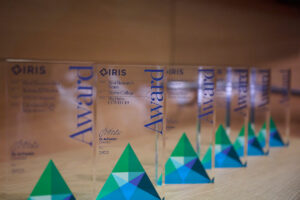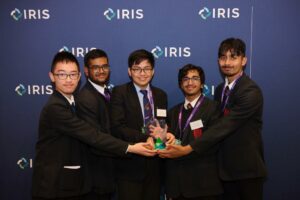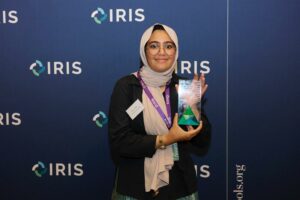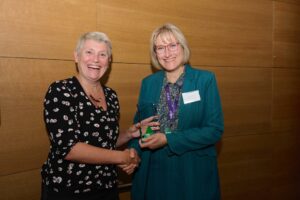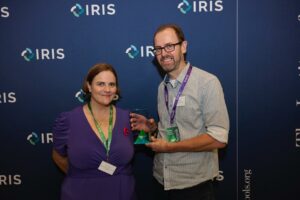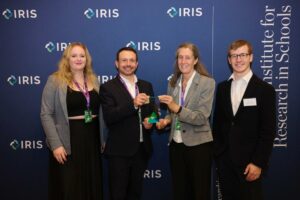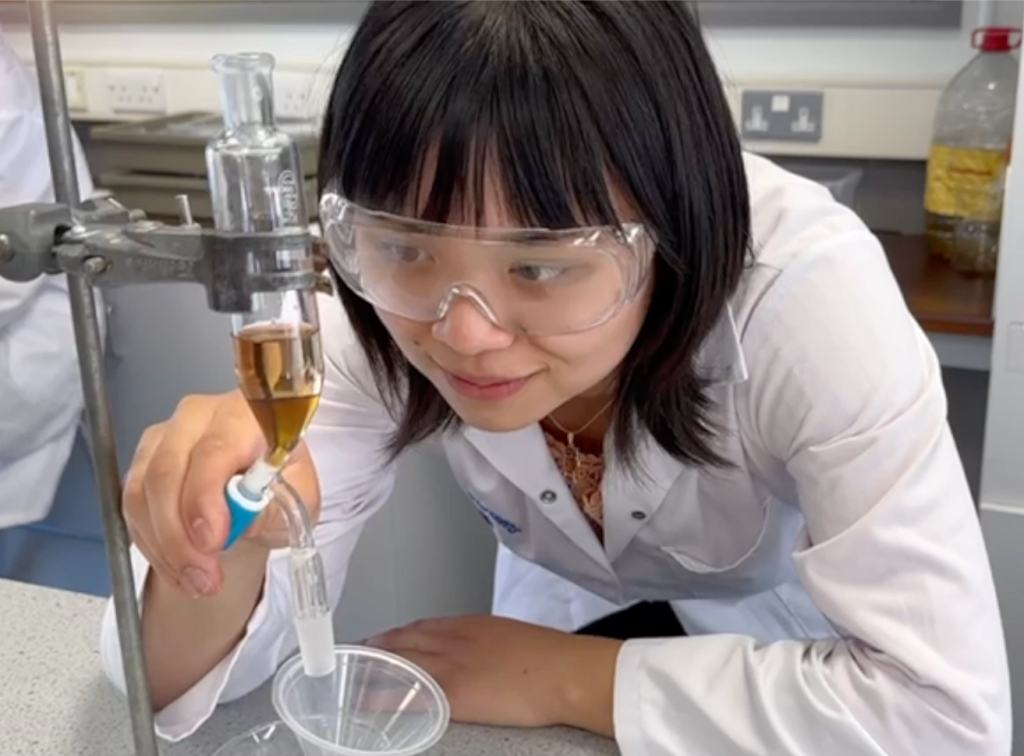The IRIS Awards are an opportunity to celebrate students’ research and showcase their work to our partner scientists and educators. This year, we recognised these bright researchers, teachers and partners:
King Edward VI Camp Hill School for Boys students used machine learning algorithms, essentially AI, to classify proton-to-proton collision events as part of our Big Data: ATLAS project. Particle physicists from the University of Oxford and the Rutherford Appleton Laboratory described their work as unique and impressive.
Derby College students explored different governments’ responses to the Covid pandemic and the impact various restrictions had on the number of deaths. They worked together to complete research as part of their T-levels. Driven by their own research questions, they demonstrated tremendous teamwork and self-motivation.
Selma, from Liverpool Life Sciences UTC, showcased a viable application of DNA origami with her unique research project. Through her development of the DNA nano-dentist robot, she aims to improve dentistry by creating enamel. Through her research, she discovered a passion for nanotechnology.
Jayne Pierre, a science teacher from Dixons Academy Sixth Form, has an infectious passion for research. She encourages students who have never done research before to produce original, imaginative work. Our team has witnessed the tremendous impact this has had on her students, including increased confidence and aspirations.
Dr Alex Ball of the Natural History Museum and Dr James Perkins of Queen Elizabeth Grammar School were recognised for their continued efforts to facilitate the use of a SEM in UK schools. The impact of their work continues to be far-reaching, enabling hundreds of students embark on original research and thousands experience the wonder of microscopy.
Alan Barr, Professor of Particle Physics at the University of Oxford, and the ATLAS team have provided a unique opportunity for IRIS students to learn key skills in Python programming and apply them to answering important questions in particle physics. Through Big Data: ATLAS, they continue to push the boundaries of what school pupils can achieve.

